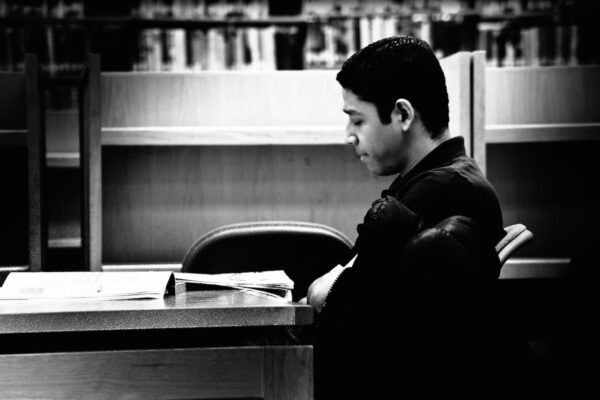Faces of Dreamers: Arisaid Gonzalez Porras and Anahi Figueroa-Flores, Georgetown University
This is one in a series of posts on individual Dreamers, undocumented immigrants brought to the United States as young children, many of whom are under threat of deportation following the Trump administration’s decision in September 2017 to rescind the Deferred Action for Childhood Arrivals policy, or DACA.
Georgetown University students Arisaid Gonzalez Porras and Anahi Figueroa-Flores are just your average Dreamers—who also want to represent Georgetown students as leaders of the Georgetown University Student Association.
“Our decision came spontaneously. We are definitely the rookies here,” said Arisaid Gonzalez Porras in an article for The Georgetown Voice.
Born in Veracruz, Mexico, and raised in Mesa, Arizona, Porras is accustomed to being the new kid and charting her own course. She applied for 80 scholarships, by her estimate, during her college search. Her college transition was helped by her involvement in the Community Scholars Program , a Georgetown initiative specifically designed to increase retention and graduation of first-generation college students, and now the Georgetown Scholars Program, which offers resources to first-generation students.
“Coming as a first gen, low-income [student]—literally fully undocumented, probably soon—it’s never been done, at least not on this campus, and not that I know nationwide, ’” Porras said. “Even if we don’t win, I know that so many students have come up to us and have been like, ‘y’all are changing something on campus. And honestly, that for me is already a win.”
Figueroa-Flores sums up their campaign by saying, “It’s about just having the representation we need on campus and showing students that they also can do this, and that they don’t have to feel this way.”
Like Porras, Figueroa-Flores is also undocumented, though she is currently protected under DACA. Raised in Commerce City, Colorado, Figueroa-Flores describes having to overcome her imposter syndrome.
“Looking at Georgetown, I never even thought I would be accepted,” she said. “I felt like I didn’t belong in classrooms. I’m majoring in computer science and double minoring in sociology and art. Especially in STEM classes, I just felt really out of place.”
That feeling of being out of place motivated Figueroa-Flores to participate in activism and protest. Starting their freshman year, she and Porras also began volunteering at United We Dream, a non-profit dedicated to supporting Dreamers.
“We realized Georgetown was missing that activism piece and that advocacy for undocumented students,” Porras said. “This year, our junior year, we were able to pull off a whole protest, which was amazing. We mobilized 157 students from Georgetown; we walked to Dupont and then protested.”
These other successes prepared the pair for their current campaign.
“It was a risky move for us to do. But like I said, I’m tired of getting overlooked and I think that carries a huge thing of being unafraid.” Porras said. “That’s what our campaign is. And our goal is hopefully to inspire others to speak up and no longer feel like they have to be in the shadows.”
—Zubin Hill
If you have any questions or comments about this blog post, please contact us.


